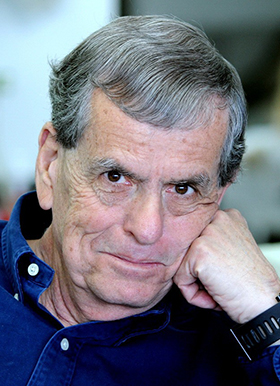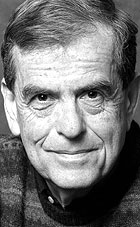
Aaron J. Ciechanover
Aaron J. Ciechanover, MD, DSc, has devoted a highly productive scientific career to understanding the mechanisms of protein breakdown within living cells — a vital aspect of cellular metabolism. Ciechanover received an honorary doctor of science degree in 2006.
His early scientific work on cellular proteolysis (protein breakdown) was conducted at the Technion-Israel Institute of Technology in Haifa, as a graduate student (D.Sc.) of Avram Hershko, M.D., Ph.D. Together they made the initial discovery of the ubiquitin-dependent proteolytic system, its enzymatic components and mechanisms of action.
The basic functions of ubiquitin and the components of the ubiquitinylation pathway were elucidated in the late 1970s and early 1980s in groundbreaking work performed by Ciechanover, Hershko and Irwin A. Rose, Ph.D., for which the Nobel Prize in chemistry was awarded in 2004.
The ubiquitin system rigorously maintains the quality of proteins in cells by eliminating faulty and unneeded proteins. Equally important, it controls numerous basic cellular processes by removing key regulatory proteins.
Unlocking cellular secrets for drug discovery
 Discovery of the ubiquitin pathway has led to the understanding of how the cell controls the cell cycle, DNA repair, gene transcription and some immune defense functions. Defects in the pathway have been implicated in the pathogenesis of many diseases, certain malignancies and neurodegenerative disorders among them. As a result, a potent anti-cancer drug has already been developed, and drugs for other malignancies and diseases are likely on the way.
Discovery of the ubiquitin pathway has led to the understanding of how the cell controls the cell cycle, DNA repair, gene transcription and some immune defense functions. Defects in the pathway have been implicated in the pathogenesis of many diseases, certain malignancies and neurodegenerative disorders among them. As a result, a potent anti-cancer drug has already been developed, and drugs for other malignancies and diseases are likely on the way.
In addition to the Nobel Prize, Ciechanover received the 2000 Albert Lasker Award for Basic Medical Research with Hershko and Alexander J. Varshavsky, Ph.D., for their work on the ubiquitin system.